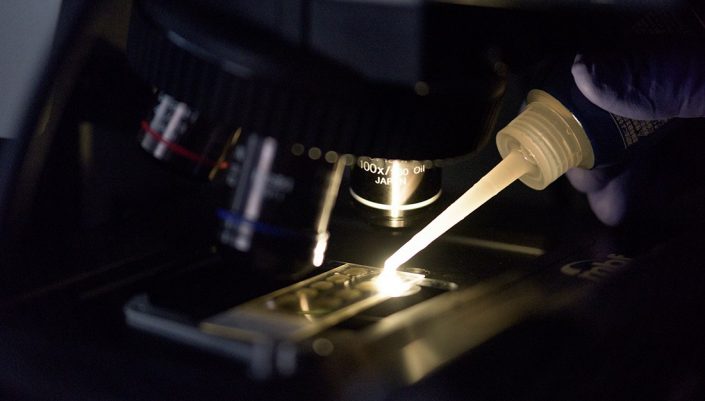Timing of chemotherapy may prove crucial in treating brain cancer

Image: College of Medicine
Biological clocks throughout the body play a major role in human health and performance, from sleep and energy use to how food is metabolized and even stroke severity. Now, Texas A&M University researchers have found that circadian rhythms could hold the key to novel therapies for glioblastoma, the most prevalent type of brain cancer in adults—and one with a grim prognosis.
Scientists in the Texas A&M Center for Biological Clocks Research determined that the timed production of a particular protein, associated with tumor proliferation and growth, is disrupted in glioblastoma cells, and they believe that this may lead to a more effective technique to treat the cancerous cells without damaging the healthy surrounding tissue. These findings, which were supported in part by the National Institutes of Health, were published Jan. 10 in the international journal BMC Cancer.
Texas A&M biologist Deborah Bell-Pedersen, a co-corresponding author on the study, found in her previous research that the biological clock in the model fungal system Neurospora crassa controls daily rhythms in the activity of a signaling molecule, called p38 mitogen activated protein kinase (MAPK). This signaling protein plays a role in glioblastoma’s highly invasive and aggressive properties.
In the new research, David J. Earnest, a mammalian biological clocks expert at the Texas A&M College of Medicine and co-corresponding author on the study, collaborated with Bell-Pedersen to show that the clock controls daily rhythms in p38 MAPK activity in a variety of mammalian cells as well, including normal glial cells, the supporting “helper” cells surrounding neurons.
Furthermore, their work found that such regulation is absent in glioblastoma cells. “We tested to see if inhibition of this cancer-promoting protein in glioblastoma cells would alter their invasive properties,” said Bell-Pedersen, an internationally recognized leader in the fields of circadian and fungal biology. “Indeed, we found that inhibition of p38 MAPK at specific times of the day—times when the activity is low in normal glial cells under control of the circadian clock—significantly reduced glioblastoma cell invasiveness to the level of noninvasive glioma cells.”
These findings indicate that glioblastoma might be a good candidate for chronochemotherapy, meaning treating cancer at specific times of day to get the most impact.

